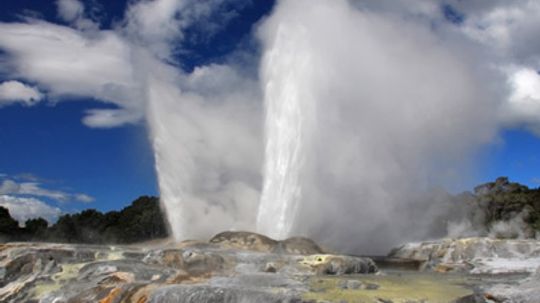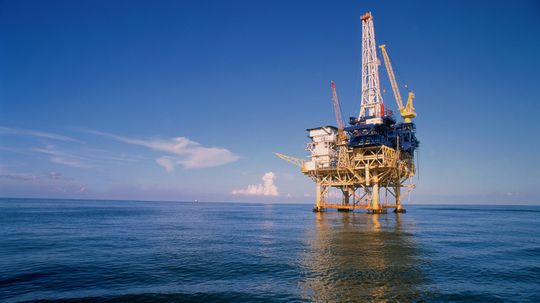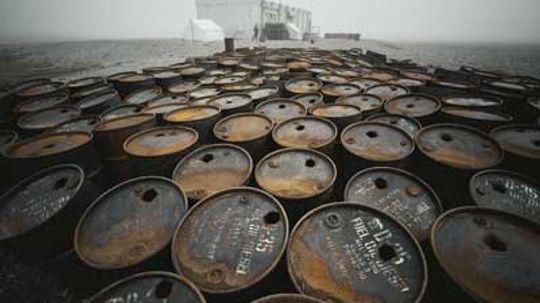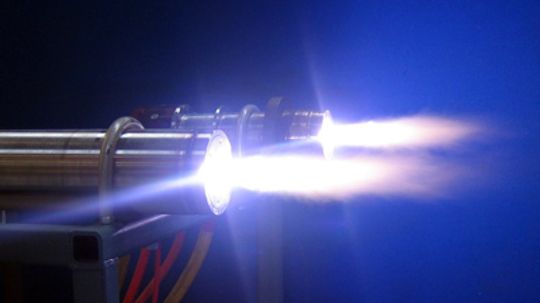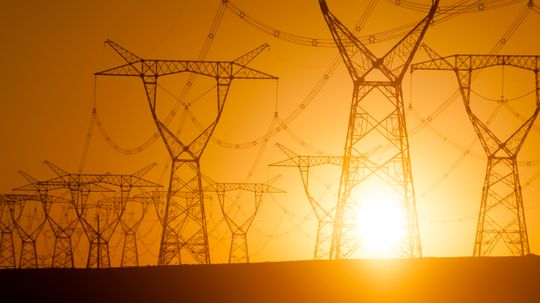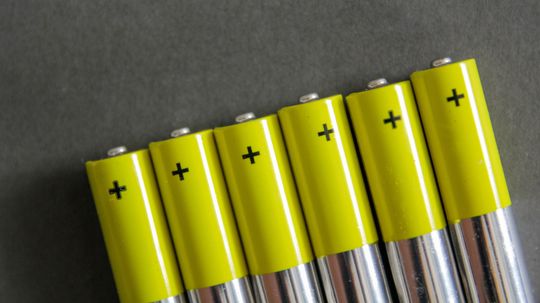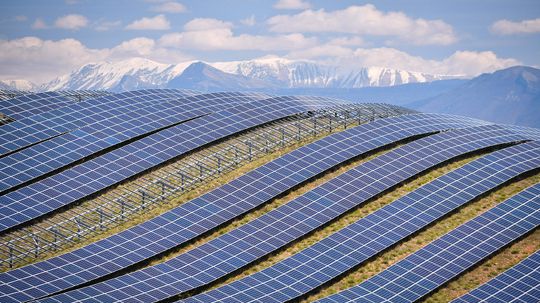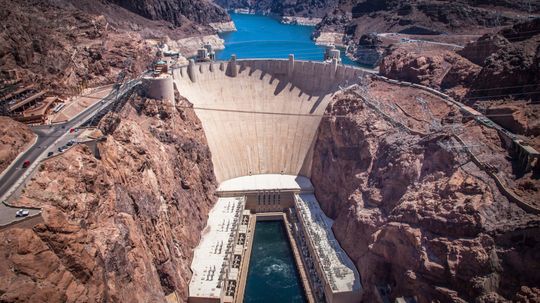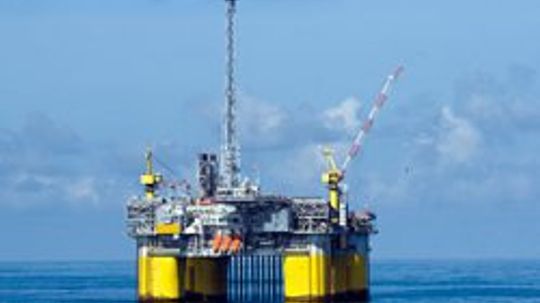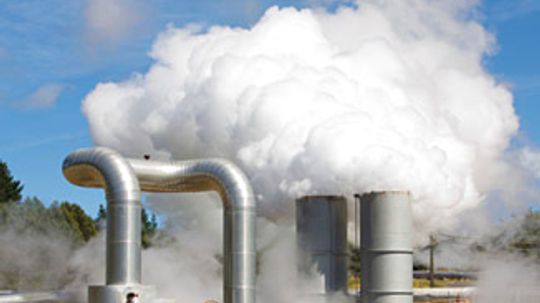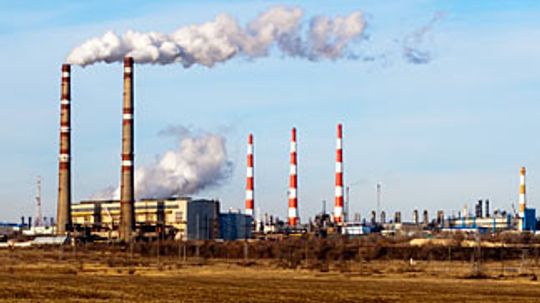Energy Production
The greatest need modern civilizations have is energy. Learn about oil, electricity and newer forms of energy like solar and wind power.

The Fish Doorbell Isn't a Joke ... Seriously
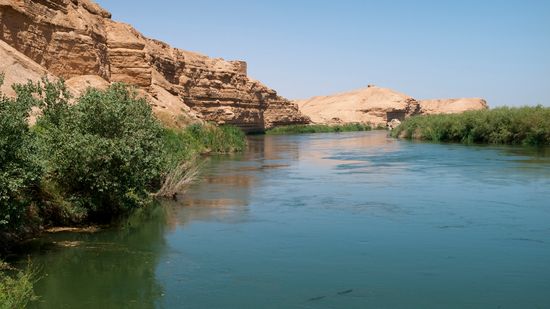
The Euphrates River, at the 'Cradle of Civilization,' Is Drying Up
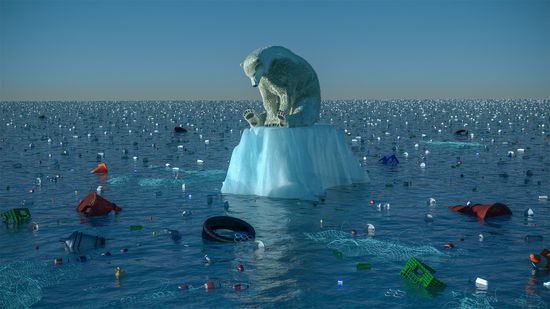
Study Says 2035 Is Climate Change Point of No Return
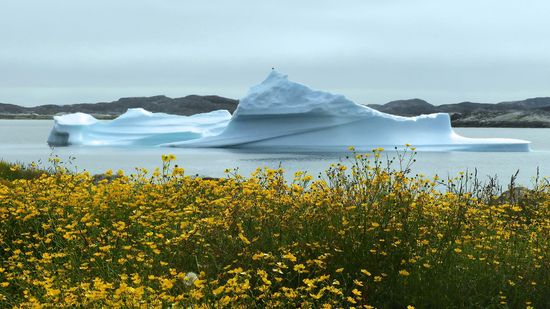
9 Arctic Plants That Defy Nature to Bloom Near the North Pole
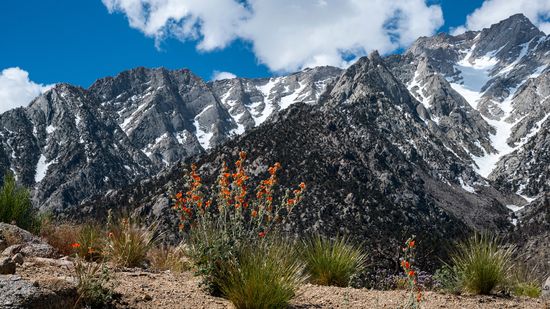
What State Has the Most Mountains in the U.S.? 8 Peak Records
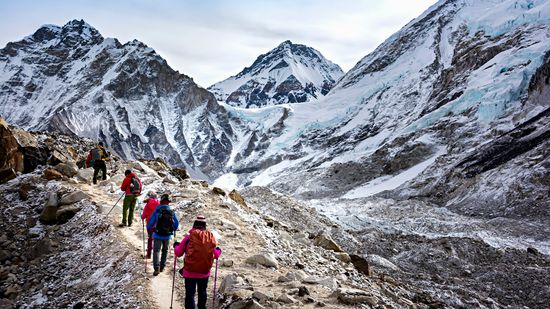
The Most Dangerous Mountain to Climb (and 14 Giving Steep Competition)

The Worst Air Quality in the World Is in Mountainous Terrain

The World Hits 8 Billion People; Is That Good or Bad?
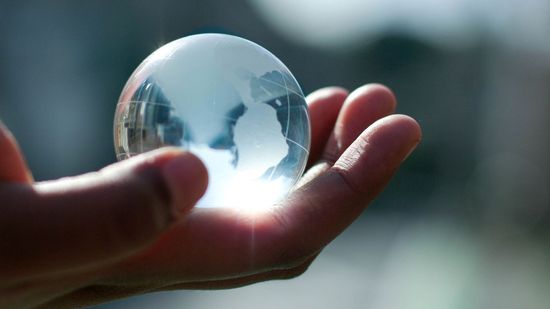
Quiz: Can You Tell Climate Change Fact From Fiction?

6 Most Futuristic Cities Powered by Renewable Energy

Top 5 Green Robots
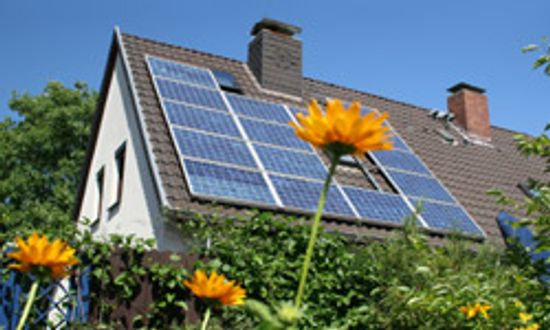
5 Things to Consider When Building a Solar-powered Home
Learn More / Page 2
When gas prices shoot through the roof, alternative technologies start to look even more interesting. This one uses heat to create energy, and all we really need is the sun.
By Jane McGrath
If oil shale can decrease U.S. dependence on foreign nations for oil, why aren't we making it yet? We're caught between a rock and a hard, geopolitical place.
By Josh Clark
If you've ever seen a geyser letting off steam or witnessed a fuming volcano simmering under pressure, you know that the interior of the Earth is really hot. So where does all that heat come from, and is there any way to harness it?
Advertisement
For decades, we've depended on an outdated, centralized power system that wastes power and occasionally fails to meet everyone's needs. The idea of a localized power grid, or microgrid, might just be the change we need.
By Robert Lamb
Drilling down thousands of feet in lightless ocean depths and transporting that oil to the surface without spilling it isn't exactly easy. Did we mention the rough seas?
By Robert Lamb & Desiree Bowie
Laws, treaties and the limits of human technology have kept some petroleum reserves just beyond the reach of oil companies. So where are they dying to drill?
By Robert Lamb
In "Back to the Future," Doc Brown throws garbage into Mr. Fusion, powering his time machine. We might be closer than you think to generating electricity for our homes using trash.
Advertisement
Electrical power is a little bit like the air you breathe: You don't really think about it until it is missing. There are good reasons the power grid distribution system works the way it does, though it can lead to some big problems.
By Marshall Brain & Dave Roos
Is it possible to generate electricity directly from heat? Thermocouples do it, with no moving parts.
Charcoal is carbon. Activated charcoal is charcoal that has been treated with oxygen to open up millions of tiny pores between the carbon atoms. What does this have to do with its absorbancy?
One way to store energy is to use a battery, but what other ways can we store energy? Learn about different ways to store energy at HowStuffWorks.
By Yara Simón
Advertisement
Let's say you have a nice fire going, and it's reduced down to a pit of hot "glowing embers." If you now toss a piece of wood, or even a sheet of paper, onto this fire, you see a huge puff of smoke as it heats up.
An oscilloscope measures the voltage and frequency of an electric signal. A machine uses "sweeps" and and an input signal. See how it all comes together.
You've probably seen solar panels on satellites, call boxes, road signs, homes and businesses. But how do solar panels work?
By Scott Aldous & Talon Homer
Have you ever wondered what happens when you flip a switch to turn something on? You're completing an electric circuit, allowing a current, or flow of electrons, through the wires.
Advertisement
You may remember the blackout that occurred on Aug. 14, 2003. It was the biggest in U.S. history. And just like every major blackout, it raised a lot of questions about how the power-distribution system works.
The ever-changing price of a barrel of oil has a lot to do with what we pay for gasoline at the pump. But do you know the four major factors that contribute to the price of oil?
Could solar cells be the asphalt of the 21st century?
Though a highly publicized 1989 cold fusion breakthrough was subsequently discredited, research is still being conducted in hopes of future success.
Advertisement
Move over corn and soybeans, there's a better biofuel in town. And this one grows in abundance at the bottom of the ocean.
People all over the world are working on turning this very ancient power source into an even more important modern one. And that means a lot more than dams.
The energy choices we make today have a huge impact on the generations that follow. In this article you will explore 5 energy choices for a sustainable future.
By Jane McGrath
The explosion and fire that destroyed the Deepwater Horizon drilling rig in the Gulf of Mexico in April 2010 killed 11 crew members and triggered an environmental nightmare.
Advertisement
For all our hand-wringing over the oil supply, it might shock you to realize that the solution to our dependence on fossil fuels lies right under our feet.
By Dave Roos
Until recently, natural gas was thought of as one of the cleanest fossil fuels. Yet new studies say it may be worse for the ozone layer than coal -- a fuel well-known for its harmful emissions.


